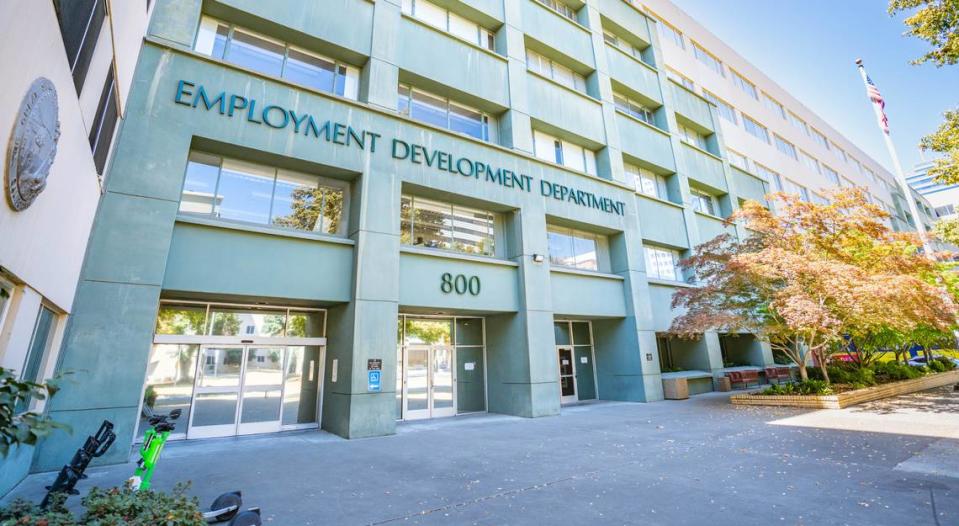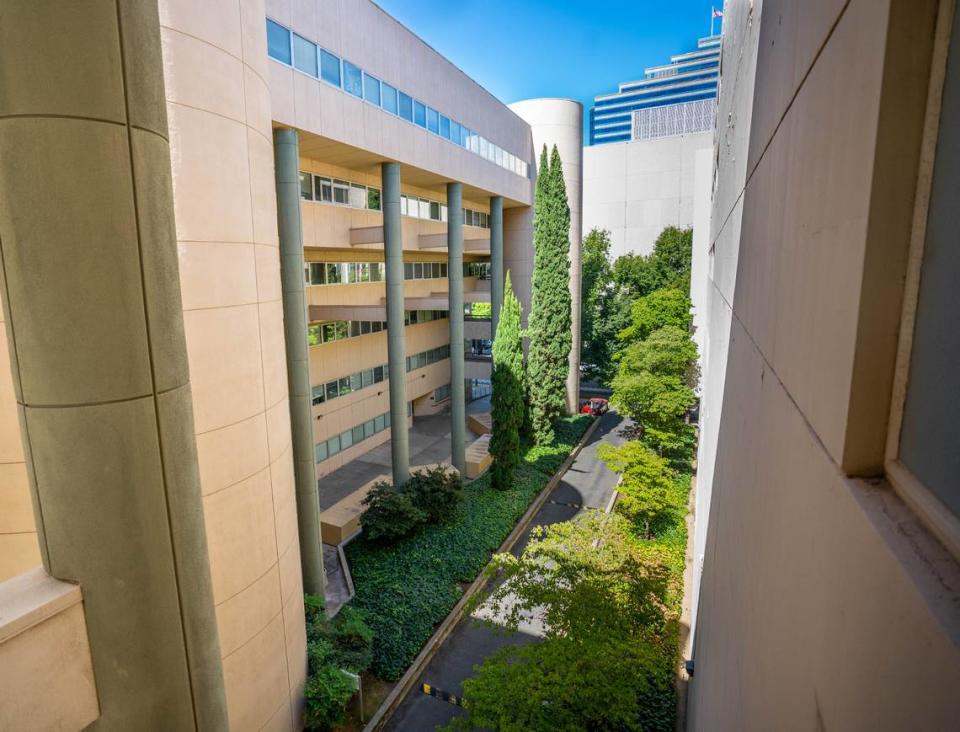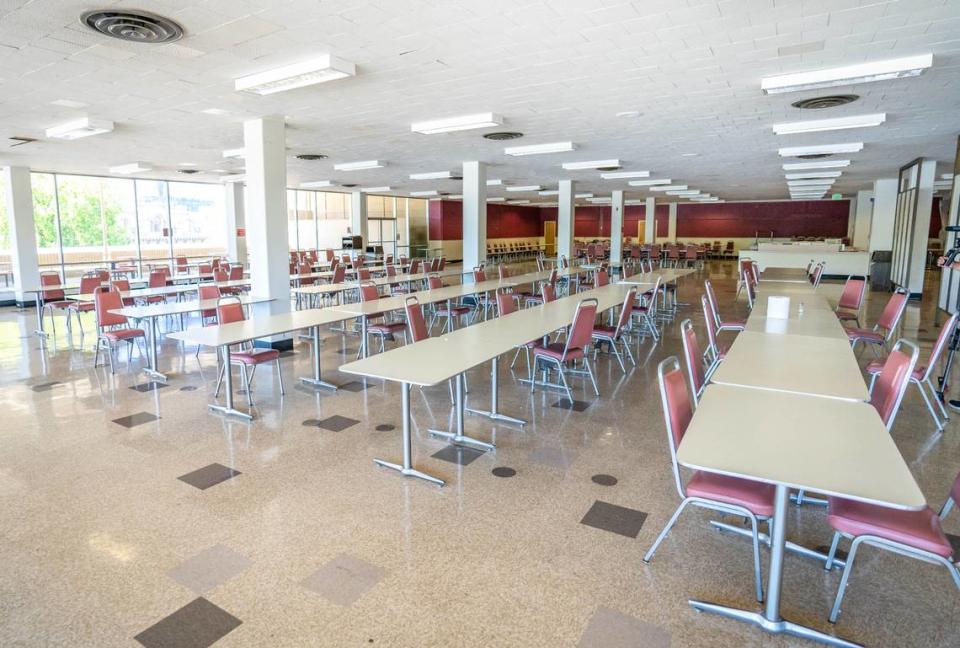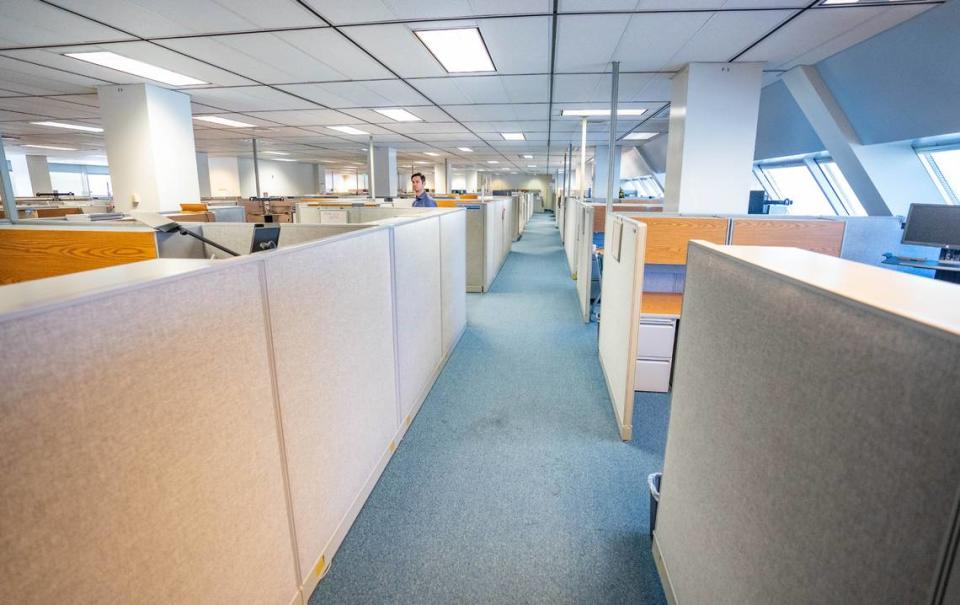This private developer will turn state office buildings in downtown Sacramento into housing
Three downtown Sacramento buildings that once served as office space for state workers are one step closer to becoming housing low- and middle-income Sacramentans.
Officials from two state agencies awarded the project Wednesday to McCormack Baron Salazar, a St. Louis-based developer. The company is known locally for its revamp of the Twin Rivers public housing project into the 487-unit mixed-income Mirasol Village in the city’s River District.
McCormack will lead the conversion of three state buildings into affordable housing: the Employment Development Department building at 800 Capitol Mall, the EDD Solar Building at 751 N St. and the state Personnel Board Building at 801 Capitol Mall.
“State workers, especially starting out, don’t make a six-figure salary. And to rent some of these new market-rate units down here, you need a six-figure salary,” said Assemblyman Kevin McCarty, D-Sacramento. “Having hundreds of affordable units right here in our core is a big win for the city of Sacramento.”

The push to redevelop state properties into housing is part of an executive order signed by Gov. Gavin Newsom in 2019 that directs state officials to identify excess state-owned property that could be transformed into affordable housing. The program has taken on more urgency since state workers moved to hybrid or work-from-home schedules in 2020, leaving downtown offices vacant.
The first project to break ground under Newsom’s order was Sonrisa, a 58-unit affordable housing building at 13th and O streets. Nonprofit developer Mutual Housing also plans to construct a five-story affordable housing complex on the site of a vacant state-owned warehouse on R Street.
The state announced the Capitol Mall projects in January and issued a Request for Qualifications to developers. They received “over a half dozen” applicants, McCarty said. The former city councilman authored a bill last year that required the Department of General Services to deliver to the Legislature a streamlined plan for how to transition underused office space into affordable housing.
State officials at Wednesday’s news conference emphasized the importance of having affordable housing in a walkable neighborhood so tenants can live close to their workplaces, as well as public transit lines.
They also spoke with a sense of urgency about the need for more housing units. The capital region faces a severe shortage of housing that low-income earners can afford. While significant progress has been made in the last year with the opening or funding of several large projects, Sacramento still has a gap of thousands of units to meet its affordable housing needs.
“We look forward to this project moving very quickly,” said Lourdes Castro Ramírez, secretary of the Business, Consumer Services and Housing Agency.

Timeline, cost still unclear for office-to-housing transition
The details of the project — including its budget and timeline — remain unclear.
Adhi Nagraj, McCormack’s chief development officer, said the goal is to solve two crises at once — too much empty office space and not enough housing — and create a “mixed-income, vibrant community.” The ground floor would ideally consist of businesses, such as shops, restaurants and even child care centers, that would be open to the public, he said. The upper floors could be a mix of housing units that are income-restricted for formerly homeless, low-income and middle-income tenants.
Nagraj said the exact mix of unit sizes and monthly rents were being worked out. Over the next several months, he said, his team will start assessing the buildings’ physical condition, as well as surveying community members to determine what kinds of units are most needed.
While no timeline for the project is set, Nagraj suggested that groundbreaking could start in as little as three years.

The Department of General Services previously studied transforming the EDD headquarters and found the building could accommodate nearly 400 low-income housing units. Jason Kenney, the agency’s deputy director of real estate, said that number could increase significantly if the developer chooses to demolish any of the existing buildings and replace them with taller apartment towers.
Kenney said employees presently working in the buildings would be moved to the old Resources Building, which is currently being refurbished, at 9th and O streets. Renovations there should be completed in 2025.
“That gives the developer plenty of time to get all of their due diligence ducks in a row,” Kenney said.
While officials and the developer are optimistic the buildings could be repurposed easily, a plan of action wouldn’t be completed until contractors were able to see what they’re working with “behind the walls.”
For example, office buildings typically have a centralized heating and air-conditioning system, along with electricity, while modern apartments usually have individual utilities.
Kenney acknowledged that there’s a possibility the developer would decide the buildings need to be gutted on the inside, or even demolished and built new from the ground up. Still, he and his department are “reasonably confident” that the buildings can be adapted and repurposed without starting from scratch.
The Bee’s Ryan Lillis contributed to this story.

